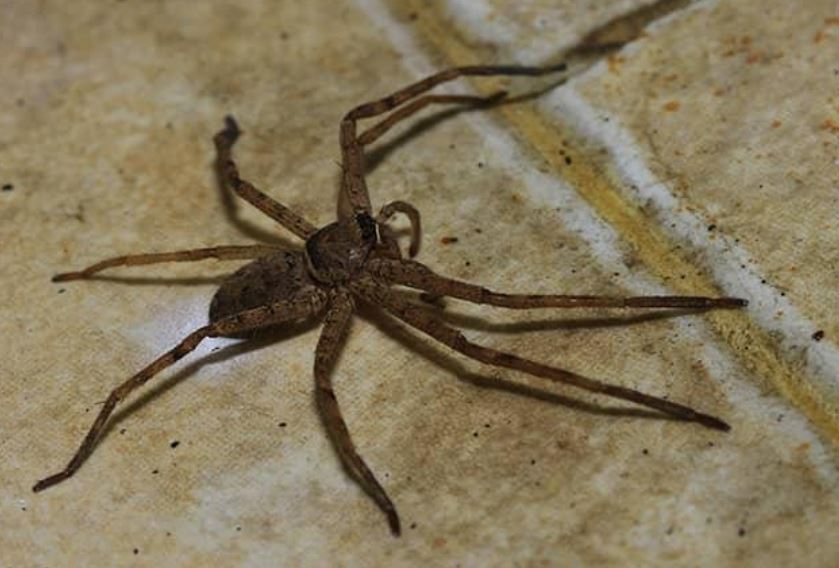What North Carolina Spiders Are Dangerous? Full Guide
North Carolina is home to a diverse range of spiders, most of which are harmless and even beneficial by controlling insect populations. However, a few species possess venom that can cause painful or medically significant reactions in humans. Knowing which spiders to watch out for can help you stay safe while enjoying the outdoors or managing pests in your home.
In this guide, we’ll explore the dangerous spiders found in North Carolina, their identifying features, habitats, and what to do if you encounter one.
Venomous Spiders in North Carolina
While many spiders can bite, only two species in North Carolina are considered medically significant due to their venom:
- Black Widow (Latrodectus mactans)
- Brown Recluse (Loxosceles reclusa) – Less common but occasionally found
Let’s break down each species in detail.
1. Black Widow Spider (Latrodectus mactans)
Identification:
- Color: Glossy black with a distinctive red hourglass marking on the underside of the abdomen.
- Size: Females are about 1.5 inches (including legs), while males are smaller and less venomous.
- Web: Irregular, tangled webs often found in dark, undisturbed areas like woodpiles, sheds, and garages.
Habitat & Behavior:
- Prefers dry, sheltered locations such as under rocks, in basements, or inside cluttered storage areas.
- Shy and non-aggressive but will bite if threatened or accidentally pressed against skin.
Black Widow Bite Symptoms:
- Immediate sharp pain, followed by muscle cramps, nausea, sweating, and elevated blood pressure.
- Severe cases may require antivenom, though fatalities are rare.
What to Do if Bitten:
- Wash the area with soap and water.
- Apply a cold compress to reduce swelling.
- Seek medical attention, especially if symptoms worsen.
2. Brown Recluse Spider (Loxosceles reclusa)
Note: While not native to North Carolina, brown recluses have been occasionally reported due to travel or accidental transport.
Identification:
- Color: Light to dark brown with a dark violin-shaped marking on the cephalothorax (head region).
- Size: About 0.5 to 1 inch in body length, with long, thin legs.
- Web: Loose, irregular webs in secluded areas like attics, closets, or behind furniture.
Habitat & Behavior:
- Prefers dry, hidden spaces and is most active at night.
- Non-aggressive but will bite if trapped against skin (e.g., in clothing or bedding).
Brown Recluse Bite Symptoms:
- Initial bite may go unnoticed or feel like a mild sting.
- Within hours or days, the area may develop severe pain, blistering, and necrosis (tissue death) in rare cases.
- Systemic reactions (fever, chills) can occur but are uncommon.
What to Do if Bitten:
- Clean the bite with antiseptic.
- Apply ice and elevate the affected limb.
- Seek medical care immediately if ulceration or severe symptoms develop.
Other Spiders in North Carolina: Mostly Harmless
While the following spiders may look intimidating, they are not considered dangerous to humans:
1. Wolf Spiders
- Large, hairy, and fast-moving but non-venomous.
- Often mistaken for tarantulas but are harmless.
2. Orb-Weaver Spiders
- Known for their large, circular webs.
- Brightly colored but pose no threat to humans.
3. Jumping Spiders
- Small, fuzzy, and curious; they hunt prey rather than building webs.
- Completely harmless and even beneficial.
4. Cellar Spiders (Daddy Longlegs)
- Delicate, long-legged spiders often found in basements.
- Myth: They are not venomous to humans.
How to Prevent Spider Bites in North Carolina
- Wear gloves when handling firewood, moving boxes, or cleaning storage areas.
- Shake out shoes, clothing, and bedding before use, especially if stored for long periods.
- Seal cracks and gaps in windows, doors, and foundations to prevent spiders from entering.
- Reduce clutter in garages, basements, and attics to eliminate hiding spots.
- Use sticky traps to monitor spider activity indoors.
Final Thoughts: Stay Informed, Not Afraid
While North Carolina does host a couple of venomous spiders, bites are rare and rarely life-threatening with proper care. Most spiders are harmless and play a crucial role in controlling pests like mosquitoes and flies.
If you suspect a dangerous spider bite, seek medical attention promptly. Otherwise, enjoy observing these fascinating creatures from a safe distance!






